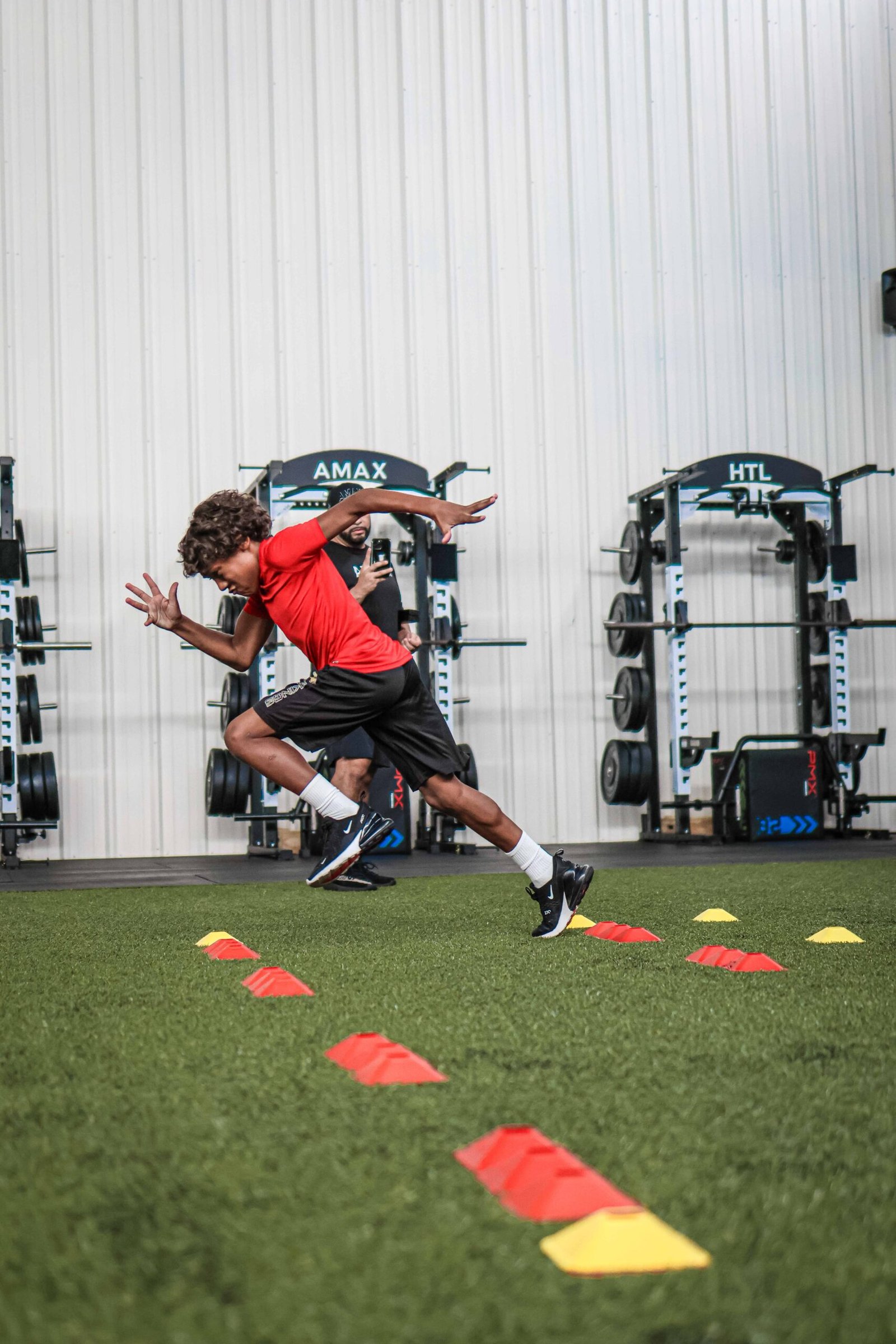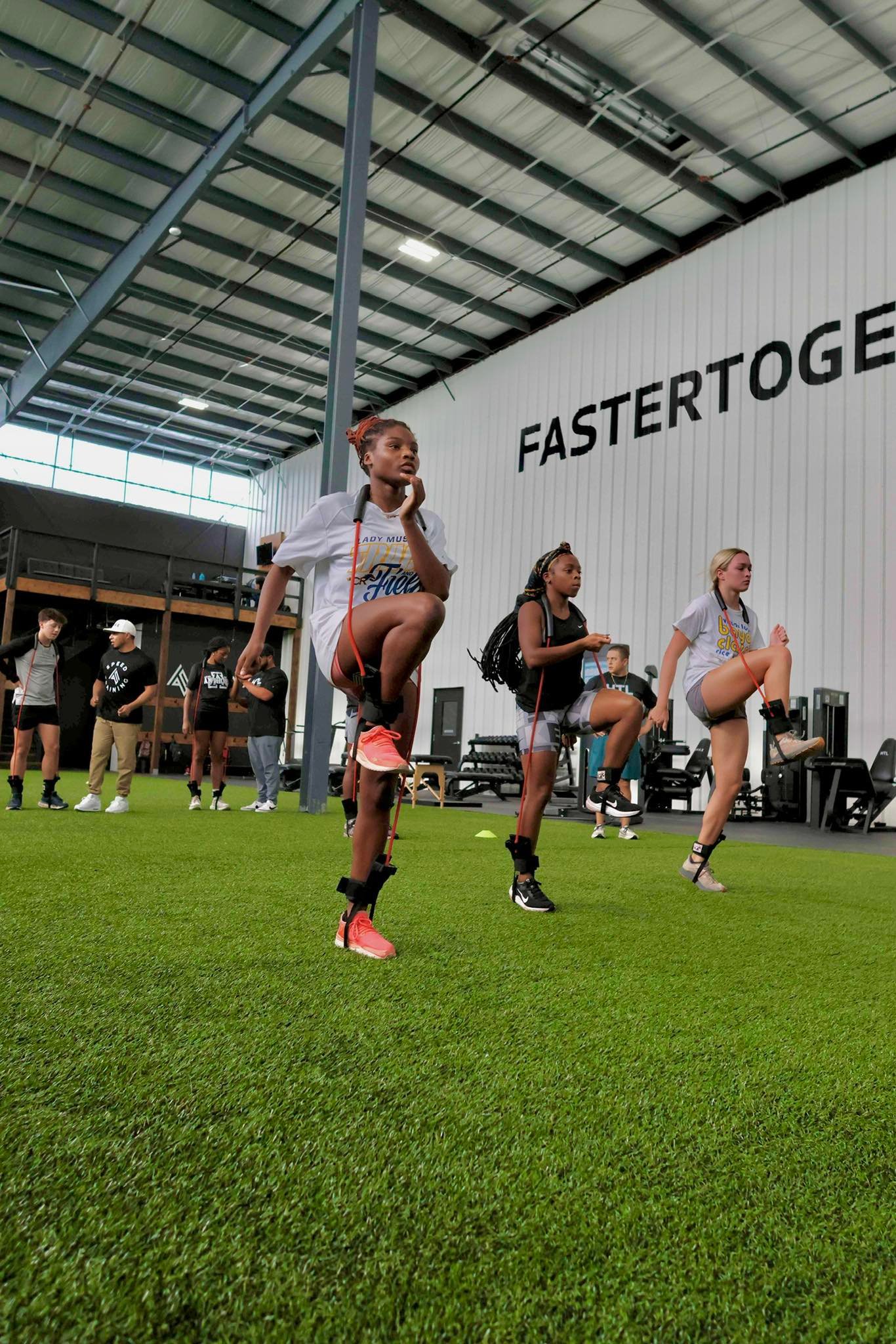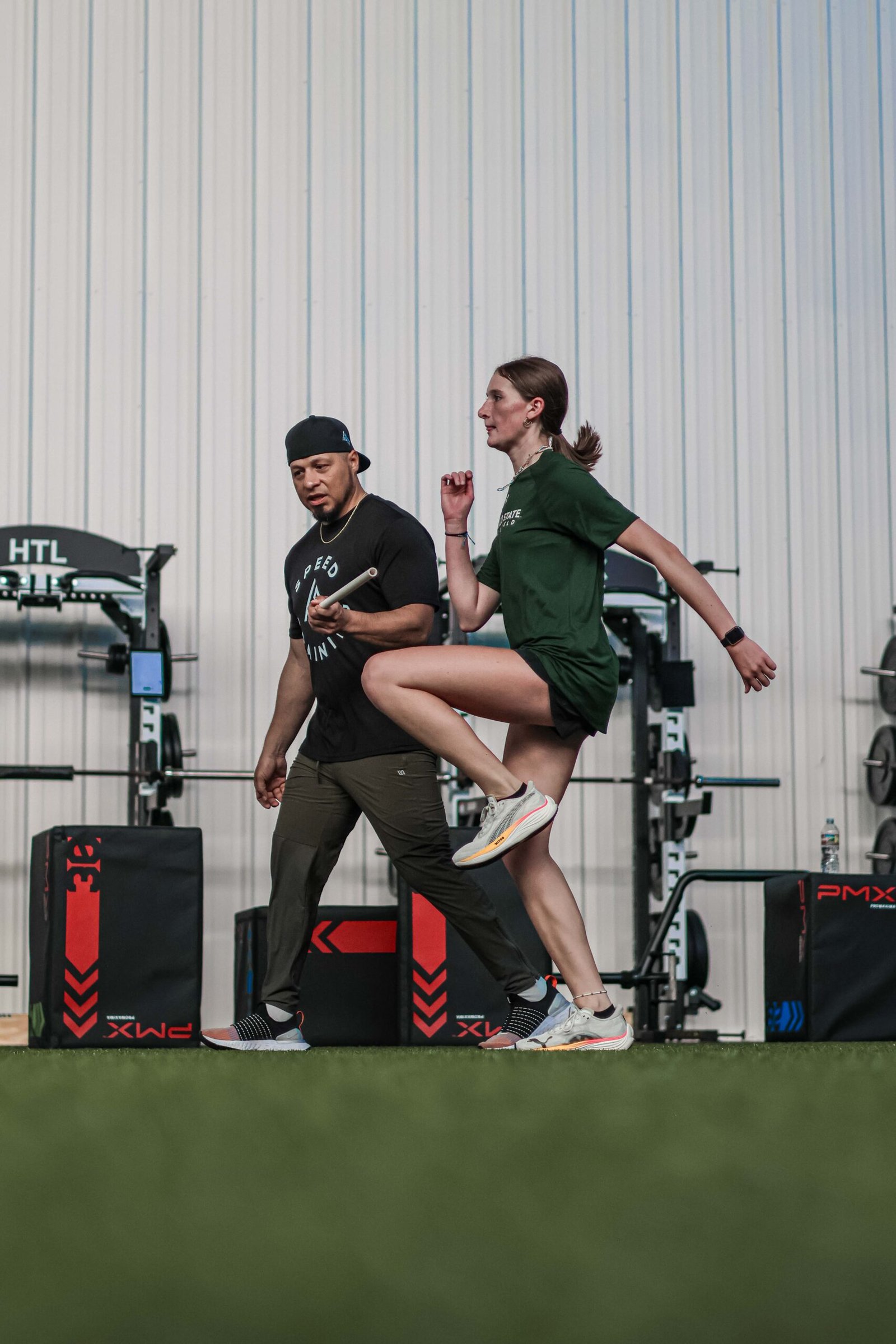What to Expect
Our testing is tailored to assess the crucial aspects of your sport and your overall athletic ability.
The session kicks off with a personalized athlete evaluation with one of our performance coaches, who will work with you to pinpoint your specific needs and goals. This discussion will shape the assessment process and help in choosing the most relevant tests for you.
Who can benefit
All Athletes should be testing & analyzing performance
Performance assessments can be customized to focus on a specific sport or provide a comprehensive overview of your general athletic performance. We have experience testing a wide range of sports, including:
Track & Field
Baseball
Football
Soccer
Basketball
Weightlifting
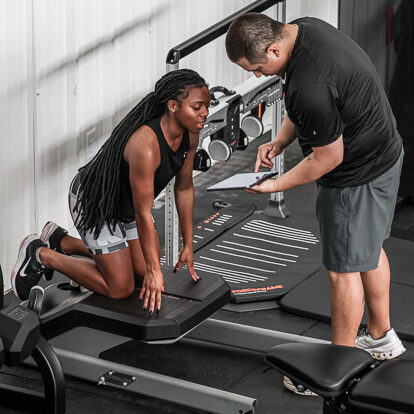
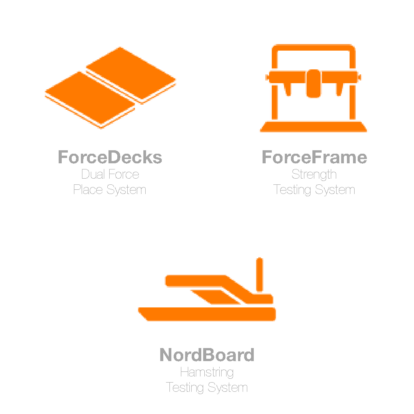
Performance Testing We Offer
ForceDecks – A dual force plate system is a tool used to measure various parameters related to neuromuscular strength, explosive power, and imbalances. The system consists of two force plates that are placed on the ground and connected to a computer system that records and analyses the data in real-time.
ForceFrame – Testing isometric muscle strength of multiple muscle groups with 130 exercises in 35 positions through all ranges which via the electronic system gives accurate readings for individual muscles.
NordBord – Considered the gold standard for testing hamstring power and imbalance. It produces real-time data to accurately assess hamstring deficits and identify injury risk
Instant reporting
Our reports guide injury rehab, prevent future injuries, and enhance performance They show improvements, uncover weaknesses, and allow for comparisons with normative data. This helps in tailoring your training program.
TESTING FREQUENCY:
Testing should happen at various points during the season. Pre-season involves intense training, while in-season testing adapts to performance and injury concerns. The goal is peak performance for finals, with off-season recovery and reflection.
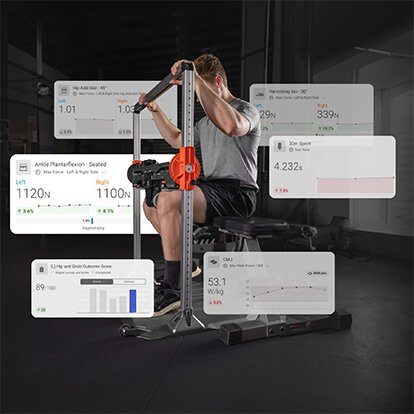
Benefits of regular assessment testing
Understanding where you are and if you are ready for peak performance. Testing plays a key role in injury prevention by identifying movement deficiencies early. Additionally, data-driven feedback from assessments boosts motivation and accountability, helping athletes stay focused on their goals. Finally, tracking progress over time allows for adjustments to programs, ensuring continuous improvement.
